- 6154
- 2
Sharing Ideas and Updates on LPG in Nigeria and related information to enable effective collaboration within the LPG Value Chain
How To Start An LPG Transportation Business In Nigeria.

As the demand for cleaner energy sources grows in Nigeria, Liquefied Petroleum Gas (LPG) is becoming the fuel of choice for both domestic and industrial use. This transition from traditional fuels like firewood and kerosene to LPG presents a lucrative opportunity for entrepreneurs interested in the transportation sector. If you're considering starting an LPG transportation business in Nigeria, it’s important to understand the market. Nigeria is one of Africa's largest producers of LPG, with a rapidly growing domestic market fueled by government policies promoting clean energy. The Nigerian government’s initiatives to increase LPG adoption make transportation a vital link in ensuring that LPG reaches consumers across the country, creating a significant opportunity for transporters to be key players in the supply chain.
A well-structured business plan is crucial for your success. Your plan should include a market analysis, evaluating the demand for LPG in your target area, considering residential, commercial, and industrial sectors. Additionally, your operational plan should detail how you will manage logistics, including acquiring vehicles, securing permits, and ensuring compliance with safety regulations.
To legally operate an LPG transportation business in Nigeria, you must obtain several permits and certifications. A haulage permit is mandatory for transporting LPG across the country. You will need to apply for this permit from the relevant regulatory authorities. Additionally, your LPG tanks must undergo regular pressure testing to ensure they meet safety standards, and you must obtain certificates for these tests. This is critical for compliance and safety.
1.) N156,000 for the vehicle license and local government permits.
2.) Pressure test certification - N100,000. - statutory payment.
(Pressure test consultant/vendor services cost not included.)
2.) Haulage permit - N50,000.
(This permit is for a fleet. Not per truck.)
Another essential requirement is the Mandatory Industrial Safety Training for Downstream Operators (MISTDO) certification for your drivers, which ensures they have the necessary safety knowledge and skills to handle LPG transportation safely. Minimum Industry Safety Training for Downstream Operations (MISTDO) is a basic safety training requirement which must be undertaken by ALL personnel working in the downstream sector of the Nigerian oil and gas industry. It is a major component of the Safety Audit Clearance policy launched by the Department to reduce risks and occurrences of accidents in the downstream sector of the Oil and Gas industry. MISTDO seeks to address the high rate of incidents caused by personnel working in the downstream sector of the Oil and Gas industry which have resulted in loss of lives, destruction of infrastructure, downtime in production, loss of revenue and environmental pollution. The outcome from previous Investigations reveal that poor safety knowledge and culture and a dearth of competent personnel in this sector are major causes of these incidents. Thus, to eliminate or reduce to the barest minimum future occurrences of these incidents, the Department in line with its mandate to enforce policies & programs for the safety of people, the environment and Oil and Gas infrastructure, developed MISTDO.
The Midstream and Downstream Oil and Gas Industry Service Permit (MDOGISP) is a regulatory program established by the Nigerian Midstream and Downstream Petroleum Regulatory Authority (NMDPRA) to ensure that companies rendering services in the Nigerian midstream and downstream petroleum sectors are appropriately licensed and compliant with industry standards. Hence, this is a permit LPG transporters must possess. Read below to see how to go about it.
1. Obtaining the Appropriate Permit
To render services in the Nigerian midstream and downstream oil and gas industry, companies must adhere to the following:
a. Licensing Requirement: All activities requiring licenses under the Midstream and Downstream Petroleum Operations must comply with the Petroleum Industry Act (PIA) 2021, the Midstream and Downstream Petroleum Operations Regulations 2023, and any other regulations issued by NMDPRA.
b. Mandatory Permit: Companies wishing to offer services under a license in the industry must obtain the appropriate and valid permit.
c. Registration: No company is allowed to provide services without first being registered and issued a permit by the NMDPRA.
d. Engagement Compliance: All operators and licensees in the midstream and downstream operations must engage only those service providers with the proper and valid permits.
e. Sanctions: Companies that provide services without the necessary permits, or operators/licensees that engage unpermitted companies, are subject to applicable sanctions.
2. Categories of MDOGISP Permits
The MDOGISP program categorizes permits into three main types, which determine the level of service a company is authorized to provide:
General Category:
Scope: Covers artisan work and maintenance services that do not require specialized skills or a formal bidding process. Also includes minor supplies under N500,000.
Major Category:
Scope: Requires companies to have relevant and verifiable technical skills.
Specialized Category:
Scope: Also requires technical skills and may involve inspection of premises.
Unprofiled Services:
Updating Services: NMDPRA will periodically update the list of services. Companies can suggest unprofiled services, which will be subject to review and approval.
3. Application Process for MDOGISP
Companies seeking to obtain MDOGISP must follow these guidelines:
Application Procedure:
a)Register the company on the NMDPRA platforms (www.celps.nmdpra.gov.ng and www.mdogisp.nmdpra.gov.ng).
b)Complete the application form and submit all required documents.
c)Pay the applicable fees, ensuring all documentation is ready for upload prior to submission.
Payment Details:
Payments are non-refundable and valid for three months. Payment alone does not guarantee permit issuance; all conditions must be met.
4. Publishing of Service Companies
NMDPRA will publish details of companies with valid MDOGISP permits to:
Promote service providers for easy access by operators.
Serve as a service directory for the public and operators.
Support companies by providing a reference hub for contractor information.
5. Enquiries and Feedback
Companies can provide feedback or seek assistance during the application process via:
a. Website: mdogisp.nmdpra.gov.ng
b. Email: mdogisp@nmdpra.gov.ng
c. Phone: +23408139891410 - 15
d. Live Chat: Available on the MDOGISP portal.
e. Summary of Application Steps
f. Visit the NMDPRA websites: www.celps.nmdpra.gov.ng and mdogisp.nmdpra.gov.ng.
g. Create a company profile or log in to an existing account.
h. Complete the online application form.
i. Make the necessary payment.
j. Upload all required documents.
k. Submit the application.
We also found out the prices for LPG transportation in different staes, we will keep updating this list as we receive more information:
1. PH - ₦250K.
2. Calabar - ₦700K
3. Aba - ₦450K
4. Owerri - ₦500K
5. Abakiliki - ₦720K
6. Enugu- ₦700K
7. Anambra - ₦680K.
Investing in specialized LPG transport vehicles, such as tankers designed to safely carry liquefied gas, is another critical step. These vehicles should comply with industry safety standards, including proper tank insulation and safety valves. Regular maintenance and inspections are essential to ensure the vehicles remain in good condition. Safety is paramount in the LPG transportation business. Ensure your drivers and staff are trained in emergency response procedures, and equip your vehicles with necessary safety gear. Compliance with safety regulations will not only protect your business but also build trust with your clients and regulatory bodies.
Building relationships with LPG suppliers, distributors, and retailers is key to securing contracts and expanding your business. Networking within the industry will help you stay informed about market trends and opportunities. Once everything is in place, focus on marketing your services. Use both traditional and digital marketing strategies to reach potential clients, including LPG distributors, retailers, and large-scale consumers.
Starting an LPG transportation business in Nigeria requires careful planning, compliance with regulatory requirements, and a strong focus on safety. With the right approach, this venture can be highly profitable, contributing to the growing clean energy sector in the country. By securing the necessary permits, ensuring your equipment is certified, and training your drivers, you can build a successful business that plays a vital role in Nigeria’s energy transition.
To understand how to get started with the MISTDO certification, please click on this link.
Do you think we should have added some more information, please make sure to comment below. We appreciate it.
2 Comments.
-
-
Work Horse tech
06 September 2024 - 07:52amA brand new truck can cost anywhere from $50,000 to $150,000 or more, depending on the size, type, and features. - A used truck can cost between $20,000 to $80,000.
*Number of trucks in a fleet:*
- A small fleet can consist of 2-5 trucks. - A medium fleet can have 6-15 trucks. - A large fleet can have 16-50 trucks or more.
*Sizes of trucks:*
- Small trucks: 1-5 tons - Medium trucks: 5-10 tons - Large trucks: 10-20 tons Peterbilt 389, - Extra-large trucks: 20-30 tons or more (e.g., semi-trailer trucks)
*ROI (Return on Investment) estimates:*
- Monthly ROI: 5-15% (depending on usage, fuel efficiency, and revenue generated) - Annual ROI: 60-180% (assuming consistent usage and revenue throughout the year)
Keep in mind that these estimates vary widely depending on factors like:
- Truck usage (e.g., daily mileage, cargo capacity) - Fuel efficiency - Maintenance costs - Revenue generated (e.g., cargo hauling, delivery services) - Location (e.g., urban, rural, regional differences)
To get a more accurate estimate, I recommend researching specific truck models, consult with us for more details on that aspect
I hope this helps! Let me know if you have further questions about it ..
Reply
-





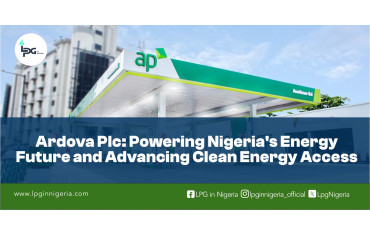
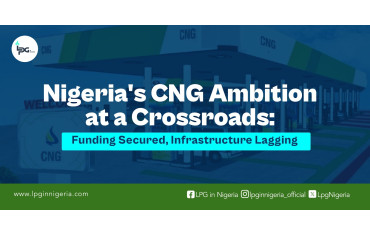
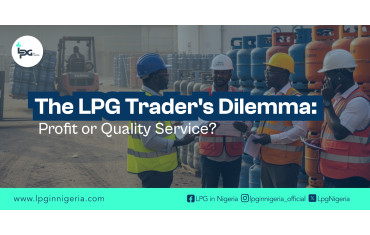

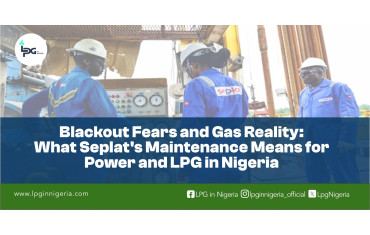
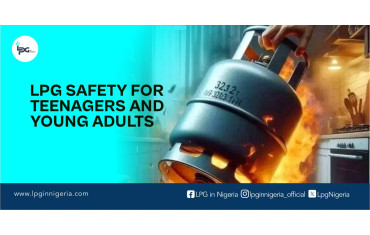





Obinna
05 September 2024 - 07:13pmYes, I wish you provide a detailed business plan for LPG transportation business; things like how much it cost for purchase a truck, how many trucks that makes up a fleet, what sizes of truck- is it for 10tons or 20tons , and what is the likely ROI, for monthly and annually? Please, you will help an entrepreneur with these information. Thanks in anticipation.
Reply